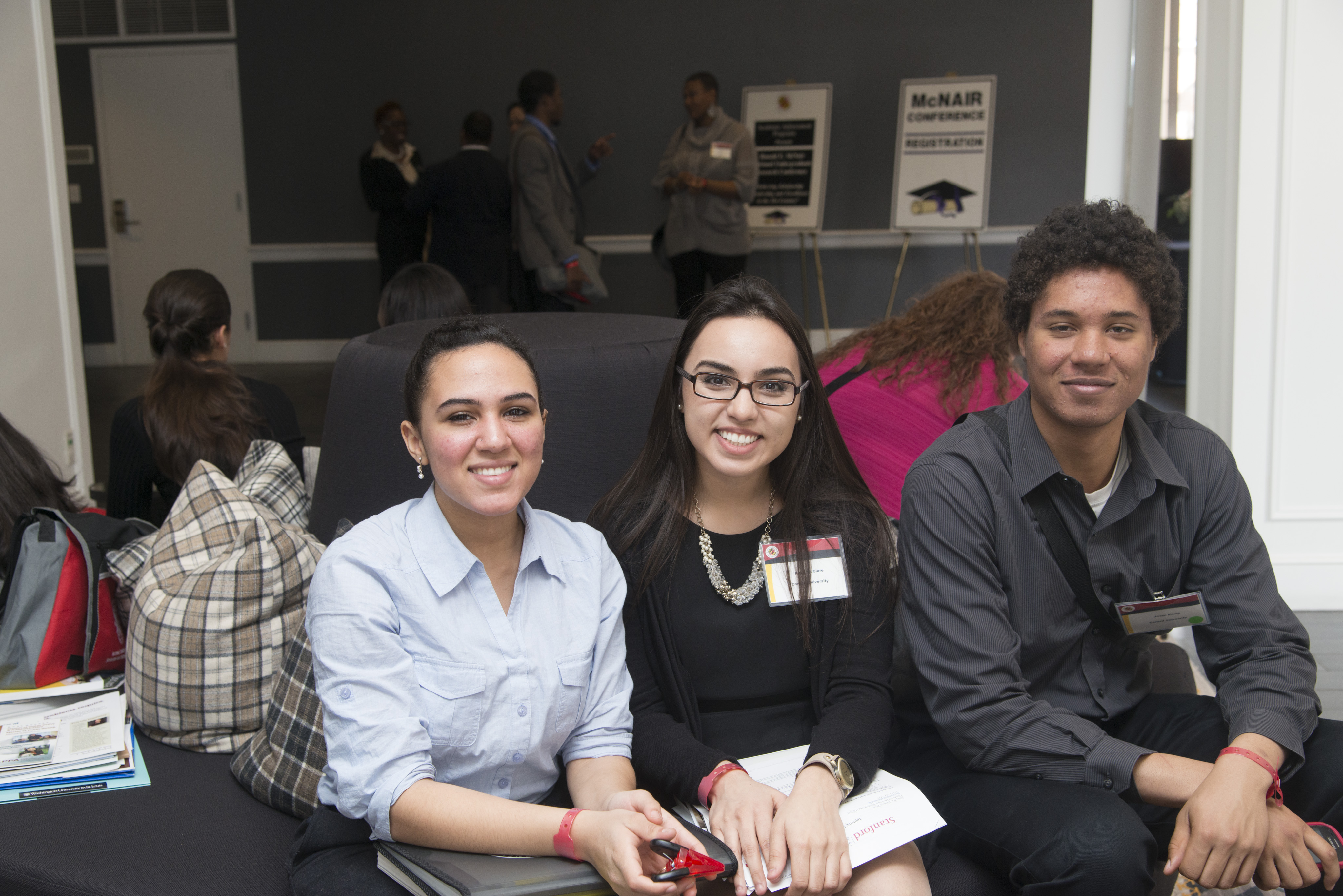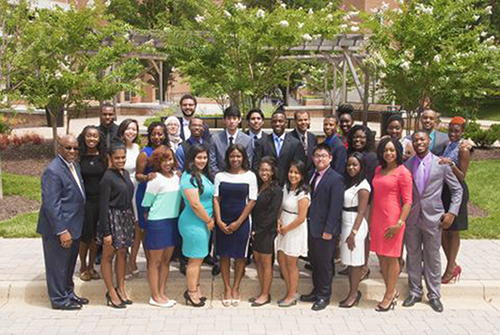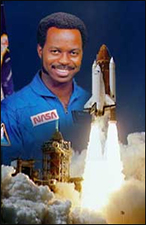RONALD E. MCNAIR
POST-BACCALAUREATE ACHIEVEMENT PROGRAM


 The University of Maryland Ronald E. McNair Post-Baccalaureate Achievement Program (McNair Scholars Program) is designed to prepare students who are primarily from low-income, first generation and traditionally underrepresented groups to pursue doctoral studies.
The University of Maryland Ronald E. McNair Post-Baccalaureate Achievement Program (McNair Scholars Program) is designed to prepare students who are primarily from low-income, first generation and traditionally underrepresented groups to pursue doctoral studies.
Students who will have at least 60 credit hours by the end of the spring semester (rising juniors and seniors), and who wish to pursue doctoral studies, enhance research and writing skills, participate in faculty-led research projects and meet overall program requirements are eligible to apply. The program offers services which include, but are not limited to:

The McNair Scholars Program at the University is one of approximately 177 such programs nationwide and serves a very important function in preparing AAP students for doctoral programs.
"Whether or not you reach your goals in life depends entirely on how well you prepare for them and how badly you want them. You're eagles! Stretch your wings and fly to the sky." - Dr. McNair
Dr. Ronald E. McNair, the second African-American to fly in space, was born on October 21, 1950 in a poor southern community in South Carolina. Despite his circumstances, Ronald McNair was determined to see his dream of being a scientist come true.
 In 1967, he graduated valedictorian from Carver High School. In 1971, he graduated from North Carolina A&T State University with a Bachelor of Science Degree in physics and enrolled at Massachusetts Institute of Technology. Ronald McNair earned a Ph.D. in laser physics at 26 and eventually became a nationally recognized expert in the field.
In 1967, he graduated valedictorian from Carver High School. In 1971, he graduated from North Carolina A&T State University with a Bachelor of Science Degree in physics and enrolled at Massachusetts Institute of Technology. Ronald McNair earned a Ph.D. in laser physics at 26 and eventually became a nationally recognized expert in the field.
In 1978, Dr. McNair was selected by NASA as one of thirty-five applicants from a pool of ten thousand for the space shuttle program. Dr. McNair was assigned as a mission specialist aboard the 1984 flight of the shuttle Challenger. On his first space shuttle mission aboard Challenger, he orbited the earth 122 times. Among his many academic achievements, Dr. McNair was the recipient of three honorary doctorates and a number of fellowships and commendations. He was a sixth degree black belt in karate and an accomplished jazz saxophonist.
Dr. McNair was the mission specialist aboard the ill-fated Challenger flight in 1986. On the morning of January 28, 1986, Dr. McNair and six crew members died in an explosion aboard the space shuttle.
"Before you can make a dream come true, you must first have one." - Dr. McNair
*Courtesy, in part, of the Cal State Fullerton McNair Program web site.
The mission of the University of Maryland Ronald E. McNair Post-Baccalaureate Achievement Program is to increase the number of undergraduates enrolling in graduate school to pursue doctoral degrees.
Values:
Given the legislative intent and purposes of the McNair Scholars Program and the mission of Academic Achievement Programs, the following primary values are espoused in all that we do:
Program Objectives
The approved program objectives for the McNair Program are SMART (specific, measurable, attainable, relational, and time-specific). The objectives are:
Learning Outcomes
Given the legislative intent of the McNair Scholars Program, as a result of their McNair experiences, participants will be able to:
Evidence of Success
To demonstrate achievement of objectives and learning outcomes, the program will:
Priority Deadline: December 13
Regular Deadline: January 31
Applications are being processed on a rolling basis and will be accepted until all spaces are filled. Please contact the McNair Scholars Program Office with questions: mcompton@umd.edu or 301-405-4749.
The McNair Scholars Program is preparing the next generation of problem-solvers, scholars, public intellectuals, professors, and leaders. We consider the following qualities:
Complete and submit an application: